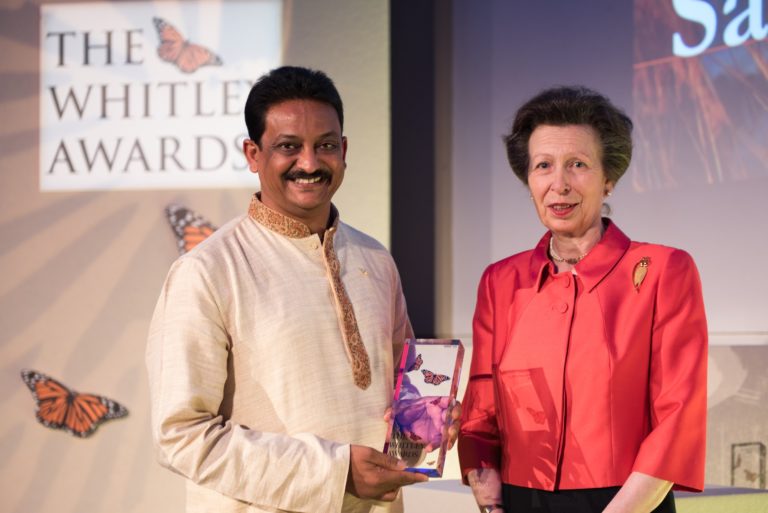Sanjay Gubbi has won the Whitley Award donated by WWF-UK for his project ‘Reducing deforestation in Karnataka’s tiger corridors, India’. The ceremony was held on 18th May at the Royal Geographical Society in London with the awards presented to the winners by HRH The Princess Royal in front of over 500 guests.
Sanjay left his job as an electrical engineer and began working in conservation, developing his skills at DICE. Today he is spearheading efforts in Karnataka State, home to 20% of India’s Bengal tigers. A Scientist at the Nature Conservation Foundation, Sanjay collaborates with authorities and stakeholders to protect and connect tiger habitats. Working closely with the government, in 2012 Sanjay helped legally secure 2,385km2 of tiger habitat. This represented the largest expansion of protected areas in India since 1970, enhancing connectivity across 23 sites.
With his Whitley Award, Sanjay is working to reduce forest degradation in two important Wildlife Sanctuaries which connect multiple protected areas, forming one of the largest contiguous tiger habitats in the country. The area has the potential to support more than 100 tigers and acts as a corridor, allowing individuals to move between territories to prevent in-breeding. Its conservation will also benefit other wildlife including elephants, leopards, pangolins and honey badgers.
Through the provision of alternatives to firewood that local communities rely upon as fuel for domestic cooking, Sanjay will strengthen protection of these corridors eliminating the need, risk and hardship incurred by people who extract firewood. The introduction of stoves that use alternative energy will reduce indoor air pollution, benefitting the health of women and families. Sanjay will also speed up compensation payments to farmers whose livestock have been lost to tiger and leopard attacks, helping tackle human-carnivore conflict and boosting support of conservation from those living alongside wildlife.
The Whitley Awards are made annually by the Whitley Fund for Nature (WFN) to recognise and celebrate effective national and regional conservation leaders across the globe. They are amongst the most high profile of conservation prizes and have been called the ‘Green Oscars’.

